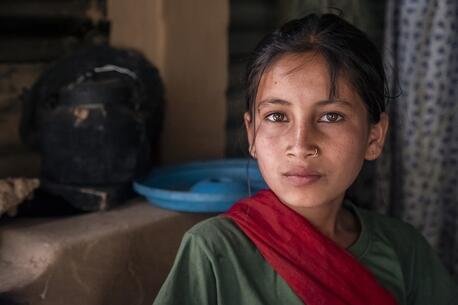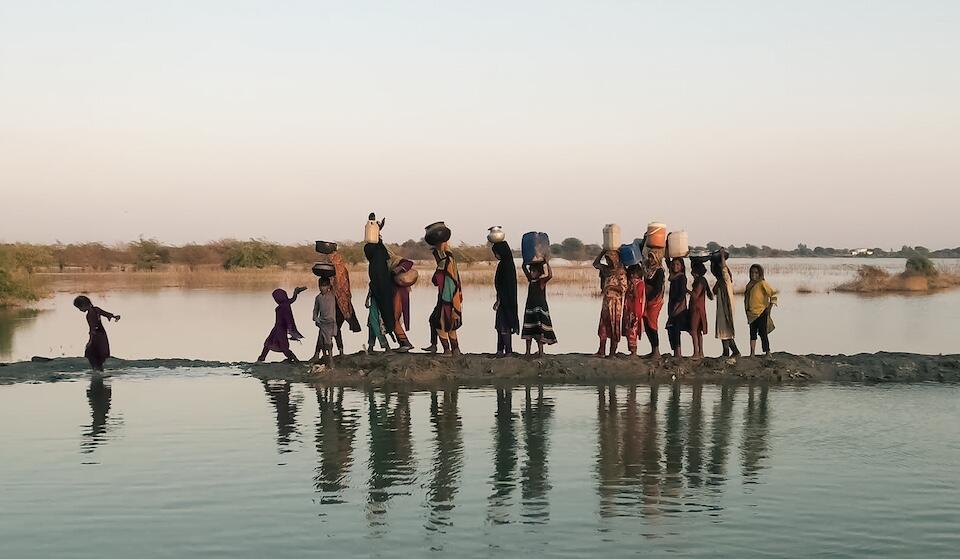
UNICEF Report: Climate Change Impacts on Child Health a Threat to Progress
From air pollution to floods to wildfires: UNICEF offers a comprehensive look at how climate change impacts child health and well-being — and what must be done about it.
A new UNICEF report takes full stock of how climate change is impacting almost every aspect of child health and well-being, from pregnancy to adolescence, urging swift action to reduce emissions and to protect and prioritize children while advancing climate mitigation and adaptation measures.
With the release of A Threat to Progress: Confronting the effects of climate change on child health and well-being, UNICEF aims to provide a comprehensive assessment of the impacts of climate change on children across six major hazards — extreme heat, droughts, wildfires, floods and storms, air pollution and ecosystem changes — and outlines specific ways to respond.
Some key points in the report include:
- children are disproportionately affected by climate change because they are uniquely vulnerable to environmental hazards, compared to adults
- the severity of impact is determined by several factors: a child's socio-economic status, gender, location, existing health status, country context and capacity
- health impacts compound when children face climate-related hazards that overlap while creating or exacerbating other problems, including water scarcity and contamination, food insecurity and contamination, infrastructural damage, service disruption and displacement
As the report points out, nearly half of all children live in countries that are extremely vulnerable to the impacts of climate change.
"The world is at a crossroads, as climate change threatens to reverse the hard-won progress on child health and the world becomes a more dangerous place for children," the report states.
"Unless mitigation efforts are accelerated and adaptation efforts are scaled up urgently, current and future generations of children will continue to bear the brunt as climate change affects their survival, lifelong health and well-being."

Urgent action is needed to reduce emissions and protect and prioritize children
In its report, UNICEF makes three broad recommendations and outlines specific actions for each:
1. Reduce emissions to meet 1.5 degree Celsius threshold, ensuring the best interest of the child
The report states that urgent, ambitious mitigation actions are needed by high-income countries to reduce emissions and support low- and middle-income countries in their energy transition.
Actions to accelerate mitigation, according to the report, must:
- prioritize child health co-benefits
- afford universal access to modern fuels and technologies for cooking to reduce emissions and child deaths attributable to household air pollution
- transition to sustainable energy in sectors that provide essential services to children and to green infrastructure
- develop a climate education program that promotes active mobility and sustainable diets
- integrate decarbonization technologies with detoxification strategies
2. Protect children from climate change impact
According to the UNICEF report, climate adaptation actions must:
- urgently equip caregivers with the information and skills they need to protect children
- strengthen climate-resilient primary health care
- safeguard access to nutritious food and safe water
- improve preparedness and response to environmental hazards
- implement child-sensitive social protection measures
The report outlines specific asks in each of these areas.
3. Prioritize child health and well-being in climate policy, investment and action
Climate action must keep children front and center, the report argues, and ensure that targeted strategies are implemented to protect their health, safety and future.
Specific actions and investments are needed to generate local data, close research gaps and foster multi-stakeholder collaboration. And children and young people need to be able to participate in such efforts.
"Focusing climate action on protecting children’s health holds the key to a brighter and more sustainable future for humanity," the report states.
"[T]he true measure of success or failure in addressing climate change lies not solely in temperature metrics, but rather in the tangible reduction of child mortality and morbidity attributable to its impacts."
Help UNICEF scale its climate work to protect children's futures. Please donate.